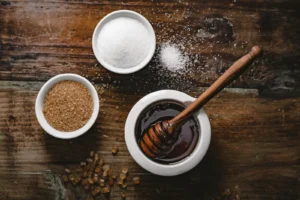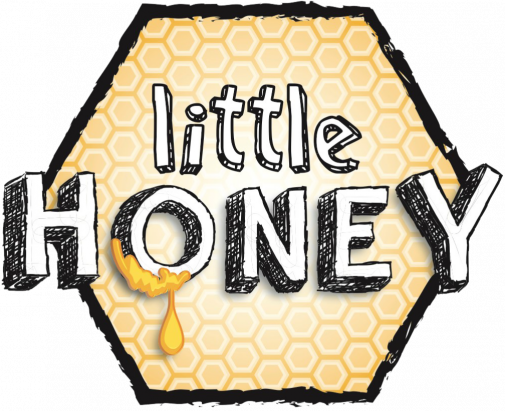
Sidr Honey Straws Specialist Singapore
What is the healthiest natural sweetener?
Introduction
In today’s health-conscious world, many people are making the switch from processed sugar to smarter alternatives. Whether it’s due to concerns over diabetes, weight gain, or inflammation, the quest for the healthiest natural sweetener has never been more popular.
This article dives into the rising popularity of natural sweeteners, introduces safe artificial sweeteners, and explores the ultimate question: Which is the better choice for your health and taste buds?
Why People Are Turning to Sweetener Alternatives
With more consumers becoming aware of the long-term risks of high sugar consumption, many are actively looking for sugar alternatives. Conditions like obesity and insulin resistance have pushed people to explore sweetener options that offer lower glycemic index values and fewer calories.
There are two main categories: natural sweeteners and artificial sweeteners. Understanding the key differences is essential before choosing what’s right for your lifestyle.
Exploring Natural Sweeteners: Benefits & Risks
So, what are examples of natural sweeteners? These are sweet substances derived from plants or fruits, not synthetically produced in labs.
Benefits of these options include:
- Naturally low in calories
- Often contain trace minerals and antioxidants
- Lower impact on blood sugar levels
However, while they’re widely praised, natural sugar substitutes may still pose allergy risks or digestive issues in sensitive individuals.
Top Natural Sweeteners You Should Know
Here are five top contenders leading the natural sweetener space:
Sidr Honey
This raw honey, particularly the Sidr variety sold by Little Honey in Singapore, is rich in antioxidants, minerals, and has powerful prebiotic benefits. It’s an ideal option for those looking to maintain natural wellness.
Stevia
Derived from the stevia plant, this sweetener is calorie-free and up to 300 times sweeter than sugar. It’s a favorite among those avoiding calories but still craving sweetness.
Maple Syrup
Sourced from tree sap, maple syrup contains beneficial minerals like manganese and zinc, making it a nutrient-rich alternative.
Coconut Sugar
Known for its lower glycemic index, coconut sugar offers a similar taste to brown sugar but with added minerals.
Date Syrup
This sweetener is packed with fiber and iron, supporting digestion and energy levels.
| Sweetener | Sweetness Level | Calories (per tsp) | Best For |
| Sidr Honey | Medium | 21 | Teas, baking, dressings |
| Stevia | Very High | 0 | Beverages, desserts |
| Maple Syrup | Medium | 17 | Pancakes, sauces |
| Coconut Sugar | Medium | 15 | Baking, cooking |
| Date Syrup | Medium | 20 | Smoothies, marinades |
The Healthiest Natural Sweetener – Is There One?
So, what is the healthiest natural sweetener?
From a nutritional and functional standpoint, Sidr Honey stands out. Its high antioxidant content, antibacterial properties, and minimal processing give it an edge. It also supports gut health and immunity, making it a natural choice for health-conscious consumers.
However, stevia and monk fruit sweeteners are also notable for being calorie-free sweeteners that don’t raise blood sugar.
Artificial Sweeteners: What to Know Before You Try Them
Artificial sweeteners are chemically processed substitutes often used in diet sodas and sugar-free snacks. Though they offer zero calories and don’t affect blood sugar, they come with both praise and concern.
Pros:
- Effective for weight loss and diabetic diets
- Convenient and long shelf life
Cons:
- Some have reported artificial sugar side effects like headaches and bloating
- May negatively impact gut bacteria with long-term use
The Safest Artificial Sweeteners to Use
What is the safest artificial sweetener to use? Here are the top picks:
- Erythritol: A natural alcohol sugar that’s generally well-tolerated and doesn’t raise insulin.
- Stevia Extract: When purified and FDA-approved, it offers a plant-based, zero-calorie sweetness.
- Monk Fruit Extract: Not only is it extremely sweet, but it also contains antioxidant compounds that provide additional health benefits.
These are among the safest choices if you’re avoiding traditional sugar.
What is the Sweet Natural Sweetener?
Stevia tops the list. It can be up to 300 times sweeter than sugar, making it ideal when you want intensity with no calories.
Monk Fruit is also extremely sweet but without bitterness. Honey follows close behind with its rich, layered sweetness.
These options are perfect for baking, cold drinks, and sugar-heavy recipes.
Natural vs Artificial: Which One Wins?
Let’s break it down in a quick sweetener comparison:
| Category | Natural Sweeteners | Artificial Sweeteners |
| Health Benefits | Nutrients, antioxidants | Calorie-free |
| Processing | Minimal | Highly processed |
| Sweetness | Mild to high | Very high |
| Long-Term Safety | Generally safe | Still debated |
For most clean-eating lifestyles and long-term wellness goals, natural sweeteners come out on top.
How to Incorporate Healthy Sweeteners into Your Diet
Looking to reduce processed sugar without compromising on taste?
- Use Sidr Honey in teas, dressings, and marinades.
- Replace sugar in coffee with stevia.
- Try coconut sugar in cookies or muffins.
Sample idea: Blend banana, almond milk, oats, and a spoon of date syrup for a sweet, energizing smoothie.
These clean-eating sweeteners work across all meals without the need for refined sugars.
Conclusion
Choosing between natural and artificial sweeteners comes down to your health priorities and preferences. While artificial sweeteners offer the benefit of zero calories, their long-term effects remain uncertain.
On the other hand, the healthiest natural sweetener like Sidr Honey from Little Honey in Singapore delivers both flavor and wellness, offering a more balanced approach to healthy living.
When in doubt, opt for nature’s goodness over lab-made imitations.
FAQ
Is honey healthier than sugar?
Yes, especially raw honey like Sidr Honey, which contains nutrients and prebiotic benefits that processed sugar lacks.
Can I use stevia every day?
In moderation, yes. Stevia is FDA-approved and considered safe for daily use.
What’s the best sugar substitute for baking?
Coconut sugar and Sidr Honey work great in baked goods, maintaining moisture and flavor.
Are artificial sweeteners safe for kids?
While some are considered safe, ongoing research suggests that artificial sweeteners should be limited in children’s diets.
Share this post :
Categories
Latest Post


Natural Wellness with Honey & Ajwa Dates: Glow & Energy

Honey for Skin Whitening: Natural Glow Tips





